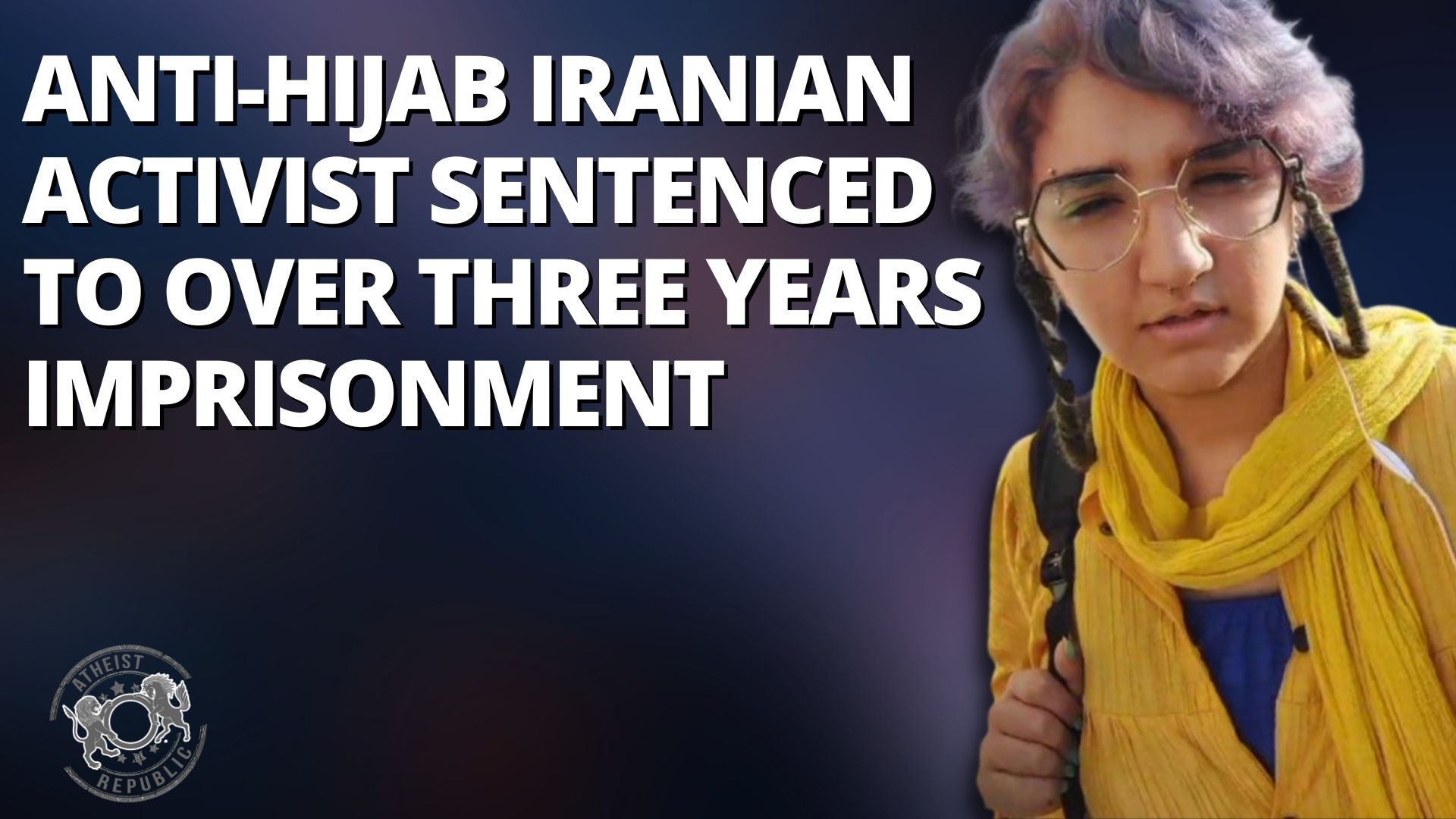
The Islamic Revolutionary Court of Tehran handed down a verdict of more than three years to an Iranian women's rights activist for protesting the hijab.
Twenty-two-year-old Melika Qaragozlu has been sentenced to three years and eight months in jail and fined 8 million tomans (US$ 246.59) for protesting against the mandatory hijab rules of the country.
On July 12, Qaragozlu posted a clip of herself on a social media platform where she was not wearing the mandatory Islamic headscarf per the country's rules, declaring her participation in a nationwide civil-disobedience campaign. The following day, she was arrested for protesting religious freedom conditions and resisting state-imposed Islamic dress codes for women.
Melika Qaragozlu is known as a student of Allameh Tabataba'i University and a multimedia journalist.
On Monday, September 19, Qaragozlu's lawyer Mohammad Ali Kamfiruzi, posted on Twitter that the Islamic Revolutionary Court in Tehran had recently handed down the verdict to his client for "posting a small video of herself without wearing a headscarf on social media."
"My client has numerous medical records, and although the forensic doctor confirmed that she must be under the supervision of a specialist psychiatrist, that was not taken into account in issuing the verdict," he added.
The verdict for Qaragozlu comes as Iran encounters widespread protests after the death of a 22-year-old woman, Mahsa Amini, who died in police custody after being arrested for wearing a hijab “improperly.”
On September 13, Amini visited Tehran with her family from Saqqaz. She was arrested by the morality police and taken away for "guidance lessons" in a van. While being taken to a detention center, she was brutally beaten inside the van, according to the eyewitnesses and women detained with Amini. Later she was taken to Kasra Hospital, where she was in a coma for two days and eventually succumbed to her injuries.
The hijab is a head-covering cloth that Muslim women wear to protect their "chastity," as defined in the Islamic scriptures. It often refers to a cloth wrapped around the head, neck, and chest, covering the hair & neck but leaving the face visible.
Since the Islamic Revolution in 1979, Iranian women over the age of nine are lawfully bound to wear the compulsory hijab in public. On July 5, by order of the Iranian president Ebrahim Raisi, the restrictions on how women can dress increased after strictly enforcing the hijab law. Women who won't obey the law will be prohibited from public places such as government offices, banks, and public transportation.
As a result, activists have started a social media campaign under the hashtag #no2hijab to protest against the restrictions. Iranian women's rights activists have posted videos of themselves removing their hijab in public, corresponding to the National Day of Hijab and Chastity on July 12. A few days later, the morality police started arresting women who participated in the campaign.
The violence and brutality shown by the morality police have been captured in videos posted on social media. The will of many Iranian women who wish to abolish the current boundary of acceptable clothing is growing throughout the country.
